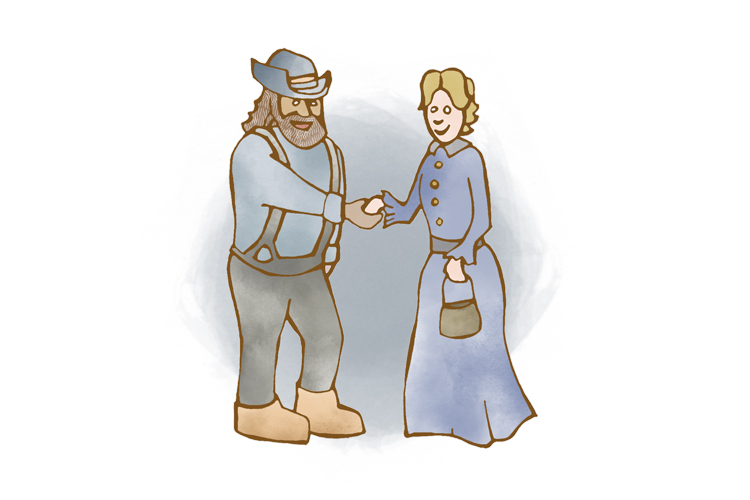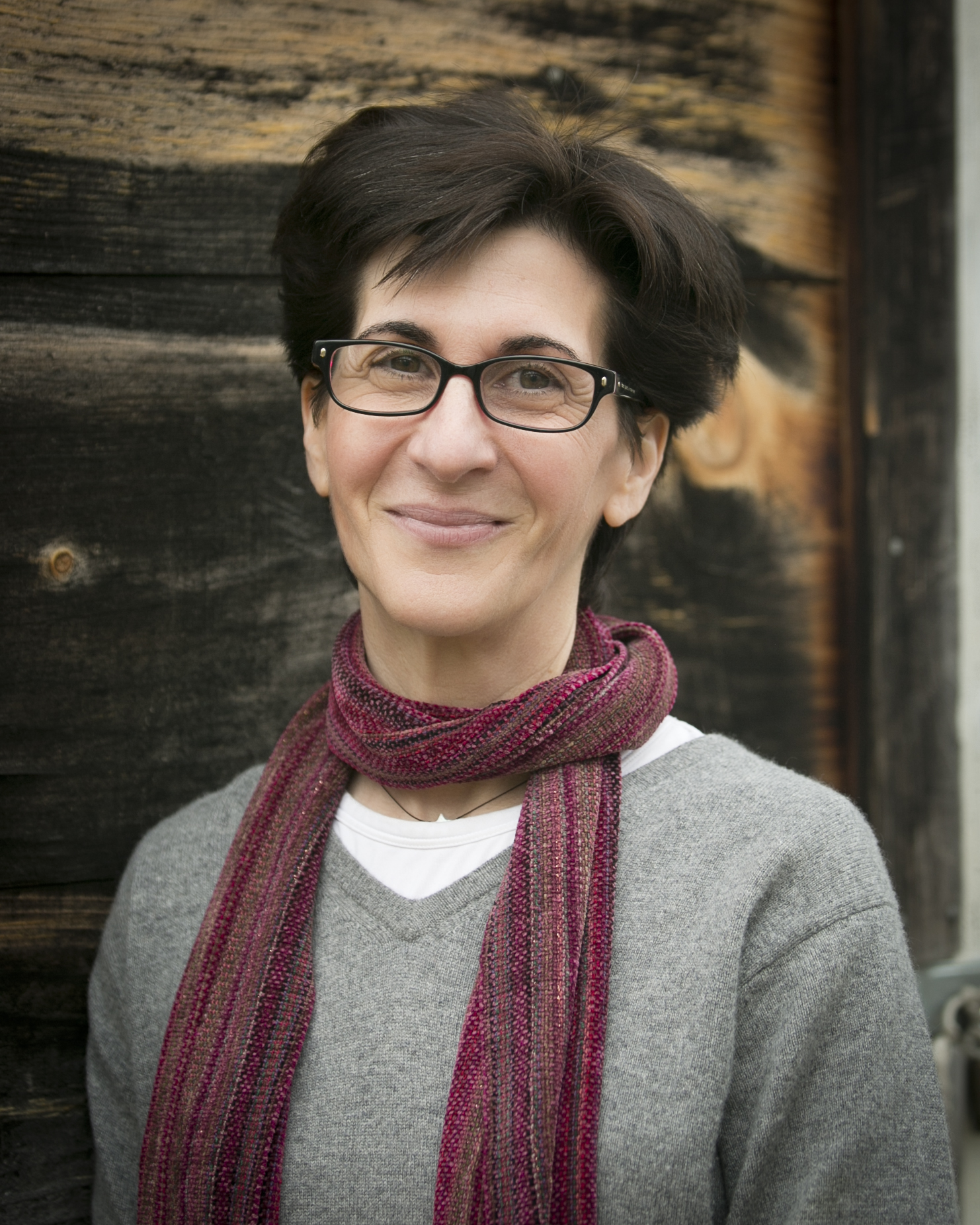Exploring the Dry Gables Series – “For the People”
Welcome back to Dry Gables, Sparklers! It’s so nice to return to a familiar place with our good friends the Denkens, the Herz Family, and the Bauers as they teach us how to be our best selves — and how to navigate even when we’re not our best selves. In short, our Dry Gables friends show us how to live in community with compassion, gratitude, and love.
In this post, we are focusing on the story “For the People” from the Dry Gables: Good Neighbors collection. Below you will see how the three main characters illustrate three unique ways to live in community.
Each time we go to Dry Gables together, we explore a different facet of how our children’s various personalities express themselves and how we as their guardians can celebrate, honor, and best support them. Our Dry Gables folks are lucky to have each other — and we are fortunate to have them, as well as the Enneagram, to guide us. The Enneagram is a complex and meaningful model of human personality. It offers us a road map which can be very useful in helping us to identify who we are at our best and what blocks us from being able to access the natural gifts that bring us to a place of happiness and greater ease.
The stories in this collection, Dry Gables: Good Neighbors, give us insights into how we resolve conflict and strive to get our needs met — and what we do when they are not met.
In Dry Gables: Good Neighbors, we ask the question:
How do our children try to get their needs met in relationships? And when their needs go unmet, how do they cope with difficulty?
In the story “For the People,” we spend more time with town planner Wilhelm Bauer, his wife and Dry Gable’s nurse Leizl Herz, and Franz and Lena Denken, proprietors of the local dry goods store. These are our Dry Gables community members who all get their needs met by acting in response to the needs of others.
Our story is focused on the election of 1896 which marked the beginning of a new era in American politics. Campaign spokespeople come to Dry Gables and talk about “The People’s Party,” or Populism. The notion of supporting the people excites Wilhelm, Liesl, and Lena and Franz Denken. They feel like the town has been too isolated and needs to get more involved in state and national politics. They start campaigning. Wilhelm runs for congressman, and Leisl becomes his campaign manager, working tirelessly for the cause. In spite of the Denkens’ faith in Wilhelm’s leadership capacities, their support goes to the gubernatorial candidate Andrew E. Lee as the one who they believe can affect the greatest change. This, naturally, is a conflict for Wilhelm and Liesl. Wilhelm runs and loses in the primary to the established candidate, but they all learn a lot about the art and science of politics … and each other.
During the campaign:
Wilhelm wants to organize and take charge in order to win the gubernatorial election.
Leisl is inspired by the Populist’s platform and she is dedicated to helping those whom she sees as oppressed. She is sure that her husband is the man to lead the cause, and although she lacks professional expertise, she selflessly pours herself into the campaign.
Franz and Lena Denken join the national democratic party and get involved in other races around the state.
What Wilhelm, Liesl, and the Denkens have in common:
- They want to serve others in order to feel needed themselves.
- They get their needs met by doing the “right thing.”
- They show how responsible they are, and as a result, they can justify getting their needs met in order to be of service.
- They want to do what is “good” for the benefit of others. They do what is “right” and what is “good” for others.
- They may like to teach others or join in with others.
Perhaps you will recognize some of these tendencies in your own child. Do you notice that your child tends to please, join in, or teach others when they want something or if they are concerned about not having their needs met?
While some may assert their confidence when challenged and others may withdraw, our friends Wilhelm, Liesl, and Franz and Lena Denken respond to stress by joining or teaching what they believe is right. This helps them to feel united with a cause and with something greater than themselves.
Children who respond to stress like Wilhelm can carry an attitude that they have something to teach to others — if only the others would listen. They can become irritated or impatient with those they see as less competent. They can sometimes be frustrated with others or themselves because they can strive to do things “perfectly.”
Children who respond to stress like Liesl want to help others who are worse off than they are. If they focus on the needs of others, they can avoid examining their own needs.
Children who respond to stress like Franz and Lena get their sense of security through their affiliations with groups. The safety and power of the group helps them to get what they need, and they often feel their group can give others what they need. They do what they are supposed to do even if others do not. They are dutiful in doing what is expected of them.
If your child has a bit of Wilhelm, Leisl, Franz or Lena in them, your invitation is to consider what would satisfy their fundamental needs and what circumstances might be creating some difficulty for them.
You might ask yourself:
For those who see Wilhelm in their child: Is he seeking reassurance that he is good and that he and others are making the world a better place, even if not perfectly?
For those who see Liesl in their child: Is she seeking validation that she is needed and wanted? Does she need to hear from you that she is thoughtful, generous, and appreciated?
For those who see Franz and Lena in their child: Are they looking for the security that they are safe and that there are those whom they truly can trust? Are they looking for support, and sometimes looking to support in order to receive it themselves?
We all have needs. We all have desires. We all face challenges.
The trick is understanding those needs, desires, and challenges — and then discovering who we authentically are in the midst of them — and then living with others in community! This is the task of being fully human. This is the task of being a good neighbor.
GOOD NEIGHBORS:
~ respect each other ~ love each other amidst differences ~ have compassion for each other’s vulnerability
You also might like to read a little more about the previous story in this series.
*DRY GABLES’ CHARACTERS and the ENNEAGRAM
In our Dry Gables Series, the Enneagram Personality Types are represented in the following story characters:
The Bauers: Dry Gables’ Crafters
Type 8 Blacksmith: Johann Bauer
Type 9 Baker: Marta Bauer (Johann’s sister)
Type 1 Carpenter: Wilhelm Bauer (Johann’s nephew)
The Herz Family: Dry Gables’ Service Leaders
Type 2 Nurse: Liesl Herz
Type 3 Businessman/Mayor: Ernst Bernard (EB) Herz(Liesl’s nephew)
Type 4 Teacher: Seamus O’Connor (Liesl’s husband)
The Denkens: Dry Gables’ Connectors
Type 5 Typesetter/Newspaperman: Max Denken (son of Franz and Lena Denken)
Type 6 General Store Owners/Merchants: Franz and Lena Denken
Type 7 Pony Express Driver: Jenka (Jane) Meyer (Maiden name: Denken)
To learn more about the Enneagram, click here.
Not yet a subscriber? Try a free trial HERE.
About the authors
-

Meredith Markow
Sparkle Schoolhouse Head of SchoolMeredith has been working with adults and children of all ages for the past 25 years as a Waldorf Teacher and Educational Consultant. She received a B.A. with a focus on child development and child psychology from the University of Michigan, in 1984, an M.A. Ed from Washington University in 1987, and her Waldorf Teaching Certificate from the Lehrerausbildung (Teacher Training) in Nurnberg, Germany in 1989. She was certified as a Living Inquiries Facilitator in 2014, and she completed her formal teaching certification with The Enneagram Institute in 2014. Her work in the classroom and with individuals and groups is designed to help people of all ages to drop self-limiting beliefs to live a more joyful and compassionate life.


